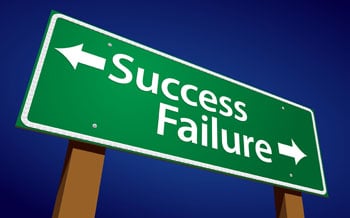Success Formulas help us identify certain behaviors that we need to execute week in and out to achieve our goals. But how do you know if yours is set up for greatness or failure?

Will Rogers said, “Even if you’re on the right track, you’ll get run over if you just sit there.”
Let’s talk about getting on and staying on the right track.
If you are like most of us, at the end of the year, you evaluate your results and then built a success formula for the type of year you need to have next year. My question is, are you working from a success formula that is destined for failure?
Of course, none of us start out with the intention of failing; we just never looked to see if the train was coming!
Success formulas are great because they force us to identify certain behaviors that we need to execute week in and week out to achieve our goals. But, they cannot exist in a vacuum. Things change, and when they do, we need to change as well.
I want to share a few ideas on small changes to your success formula that can make a big difference at the end of the year.
First of all, I am going to give you the benefit of the doubt that you are doing the minimum activity on the front end, so this isn’t a call more/run faster conversation.
- Consider prospecting for an account size that is 10% above your current target.
- What if you improved your qualifying so that you converted just one more meeting into an opportunity each month?
- What if you made one more telephone call each day? That’s over 200 more calls per year. Even if your technique didn’t improve (but it would), how many more opportunities would that create?
- What about skill development? Getting better at asking for introductions, your compelling reasons for someone to do business with you.
You should evaluate every month not just how you are doing (results) but what you are doing (behaviors). Every month, answer these four questions.
- Do I have the right metrics? In other words, am I tracking the right behaviors that support my revenue objective?
- Am I performing with the right frequency? This would involve enough calls, 1st base meetings, and asking for introductions.
- Am I performing at a high skill level? Is my message compelling? Am I asking questions that help the prospect to discover some compelling issue? Am I listening or just waiting until it’s my turn to talk? Do I prepare a pre-call plan with each prospect in mind?
- What do I need to stop doing? Do I confuse being busy with a sense of accomplishment? We can all find things to do in order to avoid what we must do.
Just a few of the right changes could make all the difference when you get to December.



.jpg?width=2200&name=analysis-blackboard-board-355952%20(1).jpg)
